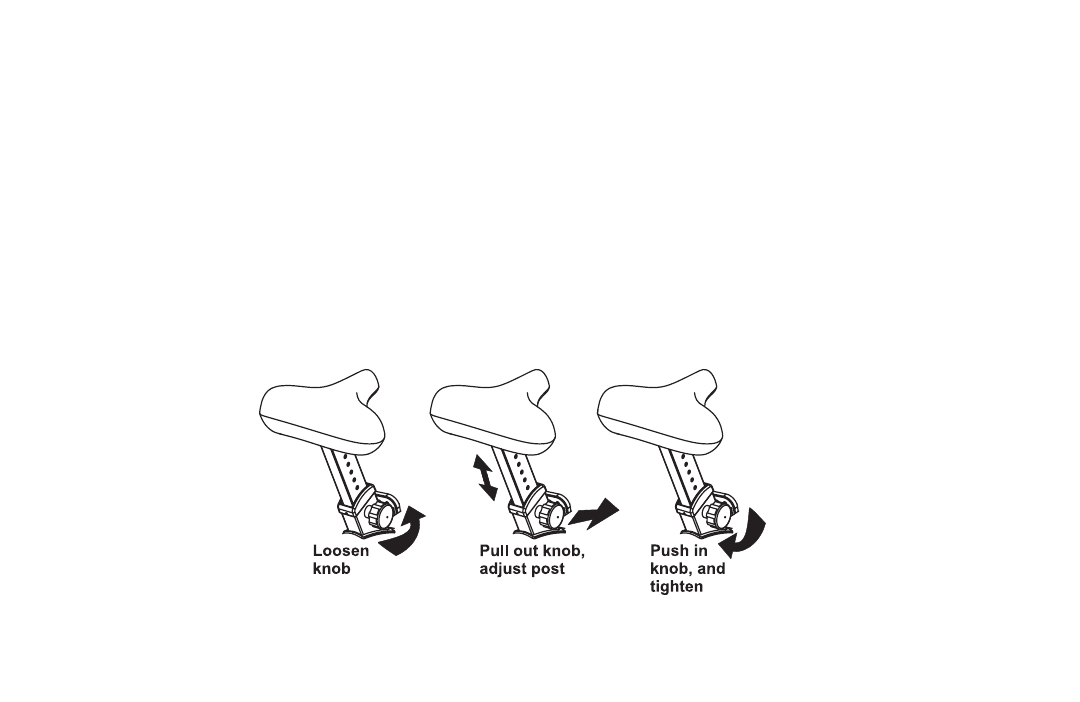
HOW TO ADJUST THE SEAT TO ENSURE CORRECT BIOMECHANICAL POSITIONING
Proper seat positioning minimizes unnecessary leg muscle fatigue. To determine whether or not the seat requires adjust-
ment, sit on it and place the balls of the feet on the pedals. The knee should bend slightly when the pedal is at the furthest
point in its rotation, relative to the body. The user should be able to pedal without locking the knees or shifting in the seat.
Adjusting the seat on the C1
5
upright bike: The bike post features a vertical locking pin seat adjustment system,
which makes it easy and safe to change the height of the seat quickly. To raise the seat, first get off the bike. Hold the
seat, turn the spring-loaded knob on the right of the seat post once counter-clockwise to loosen it, and pull out the knob
to unlock the post from its present position. Pull the seat upward to the desired height, and release the knob to let it lock
into place. Turn the knob once clockwise to tighten it. Test and re-adjust the seat height as necessary.
To lower the seat, first get off the bike. Hold the seat, turn the spring-loaded knob on the right of the seat post once
counterclockwise to loosen it, and pull out the knob to unlock the post from its present position. Let the seat slide down
to the desired height, and release the knob to let it lock into place. Turn the knob once clockwise to tighten it. Test and
re-adjust the seat height as necessary.
CAUTION :
When using the height adjustment mechanism to change the height of a partially raised seat, hold the seat to
prevent it from falling on the hand.
CAUTION: Do not attempt to lock the seat at a position higher than the minimum insertion depth marked on the seat post.
9


















